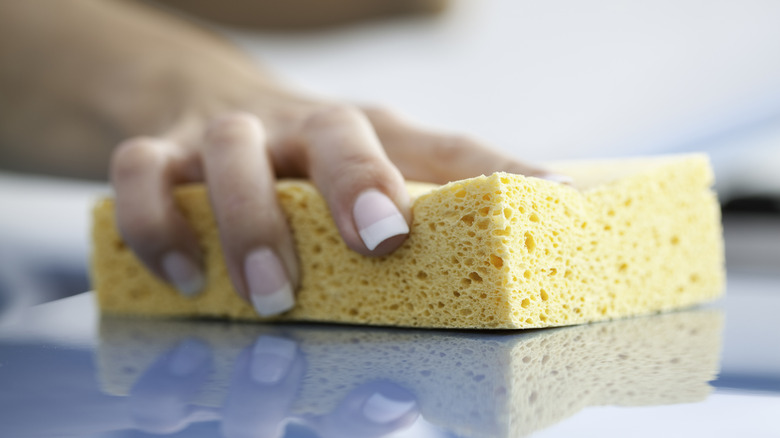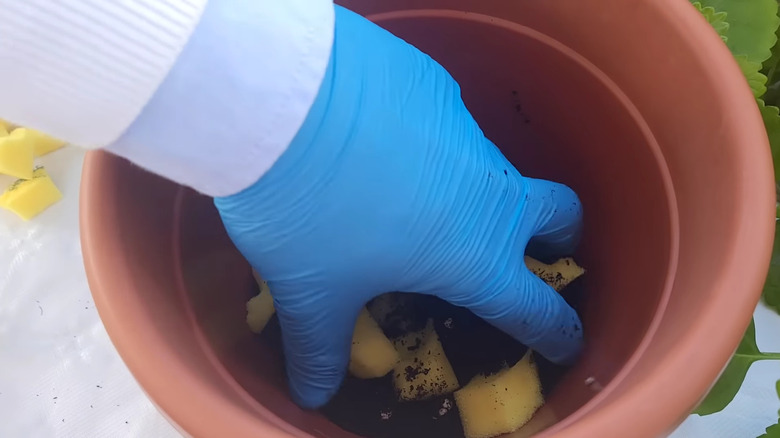The Clever Use For Sponges In The Garden That Helps Hydrate Your Plants
It's a good bet that there are several sponges around your home that are used for doing the dishes, washing the car, etc. They eventually get worn out, and most end up in the trash. In fact, an estimated 500 million go that way in the U.S. every year. Anything we can do to reduce landfill is always a good idea, and fortunately, there are lots of unexpected ways to repurpose old sponges.
There's a clever use for sponges in the garden and a similar method for your houseplants. Both will help keep them properly hydrated. Before we look at either, though, there could be a dirty truth lurking in your kitchen sponges, so it's important to make sure they are free from contaminants that might harm the plants. Leaving them to soak in a little dish soap and then rinsing thoroughly is recommended. However, if the sponge has gotten full of grease or engine oil, that's probably one you need to toss.
Out in the garden, the sponges just need to be dug in somewhere near a plant's roots. When it rains, or when the garden is watered, the sponge will soak up moisture quickly but release it slowly back into the ground, hydrating the plant gradually. The idea is similar for houseplants, but you want to cut the sponge into small pieces of about ½- or ¾-inch square and mix them in with a bottom layer of soil before potting the plant on top.
It works, but what happens when the sponges break down?
There's an understandable concern about the effect that burying sponges in the yard will have on the environment. To some extent, it depends on what your sponges are made of. Synthetic sponges can take hundreds of years to break down and may release plastics into the soil, but some sponges are made from biodegradable materials like cotton and other plant fibers and will break down harmlessly in a few years. You might want to check the labeling next time you buy. The issue of natural sponges is a complex one. While some are sustainably harvested, there are those who argue that removing them from the oceans can harm the overall ecosystem. However, these are also safe in the garden if you do choose to use them.
If you are using synthetic sponges in your yard or your pots, it's a good idea not to add them to vegetables or herbs to prevent microplastics from getting into your food. Also, bear in mind that your plants do still need the same amount of water to keep them healthy. What the sponge does is provide a source that releases it over time, thus reducing how often you have to do the job. You still need to keep a regular eye on them and act quickly if they start to show signs of wilting.

